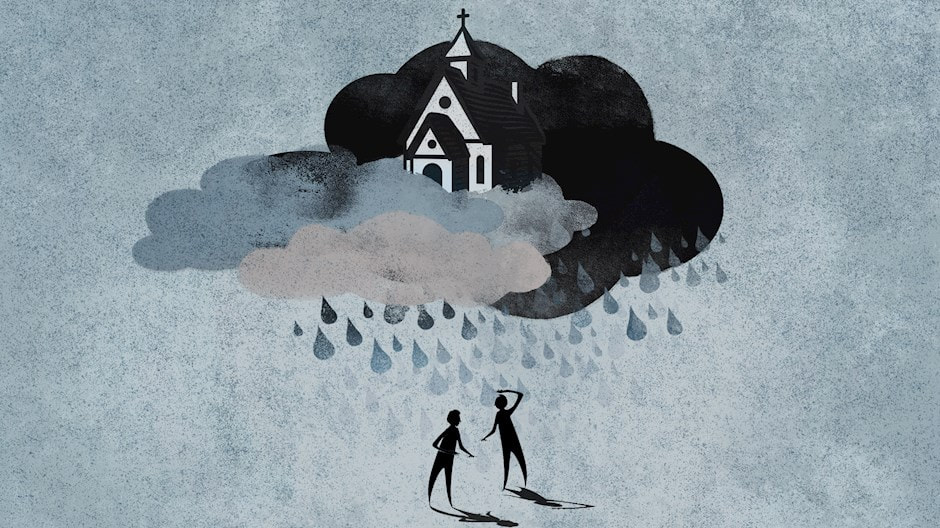Three things not to say when responding to severe criticisms of Christianity
NATASHA MOORENOVEMBER 21, 2019
NATASHA MOORENOVEMBER 21, 2019

A commenter going enigmatically by “notme” once responded to my rundown of a controversy over Scripture classes in schools: "What has religion got to offer but War, Intolerance/hatred (of other religions and minority groups),and poverty? religion should not only be banned from classrooms but from the whole planet"
I faithfully reproduce the comment as is, grammatical warts and all, keyed in, I imagine, in the first flush of a righteous indignation. They’re common accusations, straight out of the New Atheist playbook. Religious belief is irrational, snarling, psychologically and socially stunting. In the enduring formulation of Christopher Hitchens in God Is Not Great (2007): “Religion poisons everything.” But underneath the cynicism, the absolutism, sometimes the smugness, I wonder if what I’m really hearing, often, is: pain. The pain of someone who sought grace in a church community and instead found judgment and guilt. The pain, perhaps, of someone who invested their trust in a Christian group or friend only to meet with hypocrisy or cruelty. If I listened with more imagination and humility, what I might hear is the lashing out of the wounded.
Both have a terrible legitimacy. Christians have, after all, tortured heretics, burned witches, hoarded wealth, propped up slavery, rubber-stamped colonialism, expelled or massacred entire Jewish communities, silenced women, persecuted gay people, and moved known child molesters from parish to parish. These are not accusations; they are history. And not only history. You don’t have to look far – probably not much further than the murky corners of our own hearts – to see the same old uglinesses cropping up today: the self-righteousness, the love of respectability and comfort, the inertia and cowardice, the militant certitude, the blindness to inconvenient truths, the fear of difference, the fear of losing power, the fear of change or challenge.
On the Other Hand...
And yet, if the gospel is true, it is nothing less than the master story of life on this planet; the reconnection of fallen, broken creatures to their Creator and his purposes for them. If it is true, won’t it work? Even allowing for the tenacity of sin and the bumpy work of sanctification, won’t it change things, for the better, and observably – not just for the reconnected, but with ripples travelling far beyond them?
There’s plenty of evidence that this is exactly what’s happened in our world over the last two thousand years. That as followers of Jesus did love their neighbours as themselves, turn the other cheek, care for the least of these, forgive as God forgave them, and let their light shine before others, the world changed dramatically. (Read More)
I faithfully reproduce the comment as is, grammatical warts and all, keyed in, I imagine, in the first flush of a righteous indignation. They’re common accusations, straight out of the New Atheist playbook. Religious belief is irrational, snarling, psychologically and socially stunting. In the enduring formulation of Christopher Hitchens in God Is Not Great (2007): “Religion poisons everything.” But underneath the cynicism, the absolutism, sometimes the smugness, I wonder if what I’m really hearing, often, is: pain. The pain of someone who sought grace in a church community and instead found judgment and guilt. The pain, perhaps, of someone who invested their trust in a Christian group or friend only to meet with hypocrisy or cruelty. If I listened with more imagination and humility, what I might hear is the lashing out of the wounded.
Both have a terrible legitimacy. Christians have, after all, tortured heretics, burned witches, hoarded wealth, propped up slavery, rubber-stamped colonialism, expelled or massacred entire Jewish communities, silenced women, persecuted gay people, and moved known child molesters from parish to parish. These are not accusations; they are history. And not only history. You don’t have to look far – probably not much further than the murky corners of our own hearts – to see the same old uglinesses cropping up today: the self-righteousness, the love of respectability and comfort, the inertia and cowardice, the militant certitude, the blindness to inconvenient truths, the fear of difference, the fear of losing power, the fear of change or challenge.
On the Other Hand...
And yet, if the gospel is true, it is nothing less than the master story of life on this planet; the reconnection of fallen, broken creatures to their Creator and his purposes for them. If it is true, won’t it work? Even allowing for the tenacity of sin and the bumpy work of sanctification, won’t it change things, for the better, and observably – not just for the reconnected, but with ripples travelling far beyond them?
There’s plenty of evidence that this is exactly what’s happened in our world over the last two thousand years. That as followers of Jesus did love their neighbours as themselves, turn the other cheek, care for the least of these, forgive as God forgave them, and let their light shine before others, the world changed dramatically. (Read More)

 RSS Feed
RSS Feed
